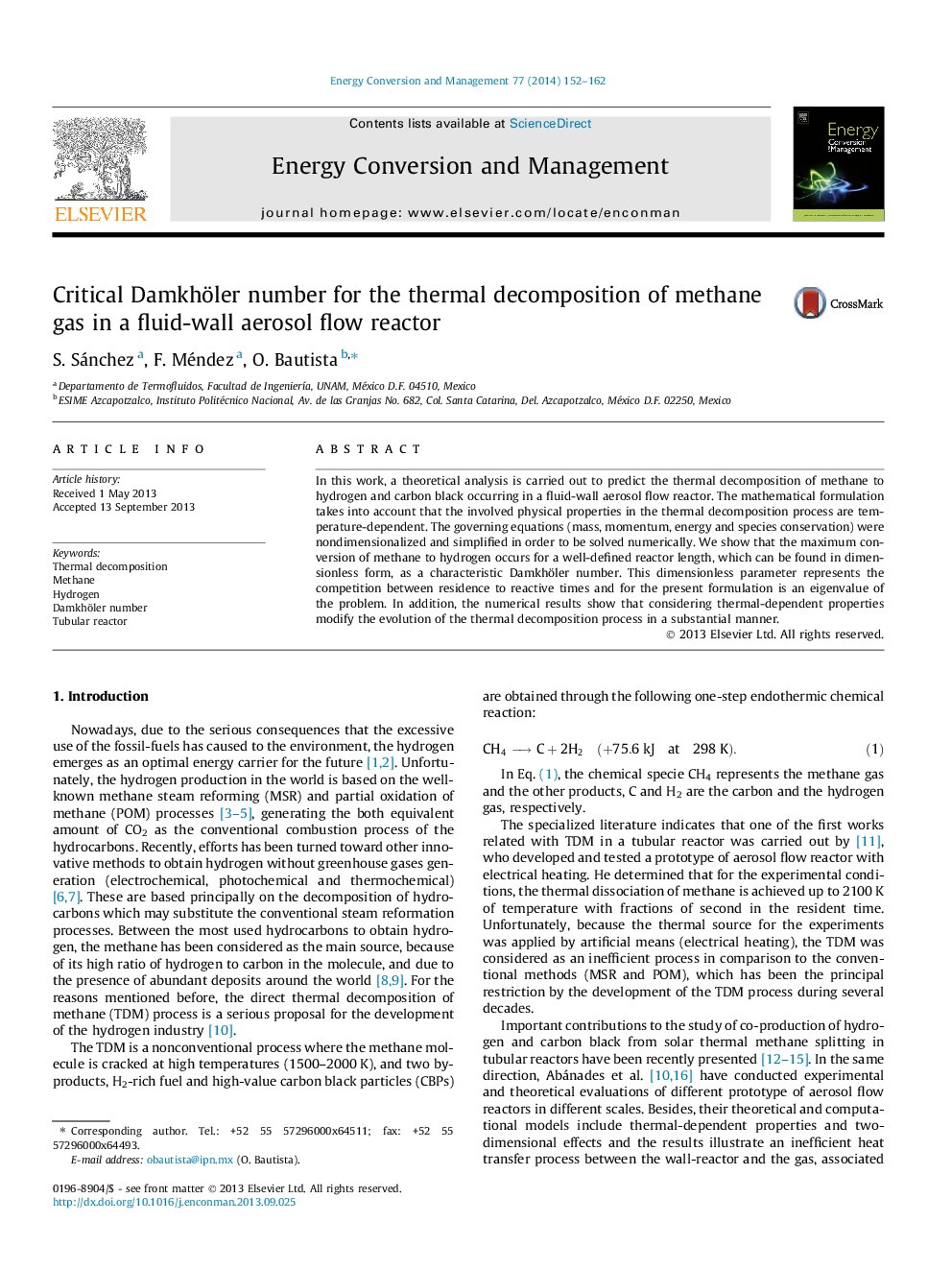| Article ID | Journal | Published Year | Pages | File Type |
|---|---|---|---|---|
| 7165557 | Energy Conversion and Management | 2014 | 11 Pages |
Abstract
In this work, a theoretical analysis is carried out to predict the thermal decomposition of methane to hydrogen and carbon black occurring in a fluid-wall aerosol flow reactor. The mathematical formulation takes into account that the involved physical properties in the thermal decomposition process are temperature-dependent. The governing equations (mass, momentum, energy and species conservation) were nondimensionalized and simplified in order to be solved numerically. We show that the maximum conversion of methane to hydrogen occurs for a well-defined reactor length, which can be found in dimensionless form, as a characteristic Damkhöler number. This dimensionless parameter represents the competition between residence to reactive times and for the present formulation is an eigenvalue of the problem. In addition, the numerical results show that considering thermal-dependent properties modify the evolution of the thermal decomposition process in a substantial manner.
Related Topics
Physical Sciences and Engineering
Energy
Energy (General)
Authors
S. Sánchez, F. Méndez, O. Bautista,
